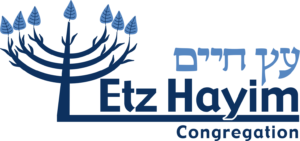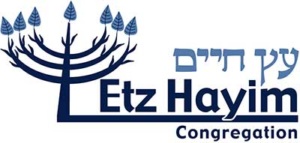Instructions for counting the omer are found on our Omer Overview Page. You can find the specific blessing for today at chabad.org.
We’re dedicating a new Sefer Torah on the first day of Shavuot. In honor of this joyous occasion, we’re using the counting of the Omer to take a whirlwind trip through the Torah
Today’s portion is Vayechi from the book of Genesis. Today’s insight was generously provided by Sharon and John
Verses of note: Genesis 48:7, 48:20
What caught your attention in this parashah?
Why did Ya’acov bury Rachel along the road to Efrat, and, further, why did he bless his grandsons switch his hands, blessing the younger brother Ephraim before the older Menashe?
What’s one explanation for these verses?
We chose two different portions of Parashah Vayechi: Sharon curious about Ya’acov’s request for Yosef to bury him in the Land of Israel, specifically in the Cave of Machpelah, when Rachel, Yosef’s mother and Ya’acov’s wife, was not buried there – rather, Rachel died in the Land of Canaan and Ya’acov buried her there on the way of Efrat; and John intrigued with the favoritism Ya’acov expresses not only among his sons, but also his grandsons.
Why did Ya’acov bury his favorite wife by the wayside, instead of carrying her at least into the city of Beitlechem, which was nearby? According to Ramban, the reason why Ya’acov did not bury Rachel in the Cave of Machpelach was in order that he should not be buried together with two sisters, for Torah law forbids marrying two sisters. Since Leah was his first wife, and was already buried in the Cave, Ya’acov was buried with her, despite the fact that Rachel was his first love. Rashi offers another explanation: Ya’acov buried her there by the command of G-d, so that Rachel would help her children in future times when they would be driven into captivity. In this way, when the Jews were to pass along the road, Rachel would come forth from her grave and stand by her tomb weeping and beseeching mercy for her children.
Both rationales seem a bit contrived, but the latter seems perhaps more justified. That is, Rachel is considered foremost in building the house of Israel, and the children of Israel are considered Rachel’s, as it is stated: “Rachel is weeping for her children.” (Bereshit Rabbah 71:2 quoting Yirmeyahu 31:14.)
John recalled the blessings bestowed on our children at the start of the Friday evening Shabbat meal, where boys are blessed to “be like Ephraim and Menashe.” Ephraim and Menashe seem to be the first set of Jewish brothers who didn’t fight. Recall the conflict between Isaac and Ishmael, Jacob and Esav, Yosef and his brothers. Ya’akov’s actions recognized the importance of this lack of conflict, which is captured beautifully in Psalm 133 – “How good and pleasant is it for brothers to sit peacefully together.”


